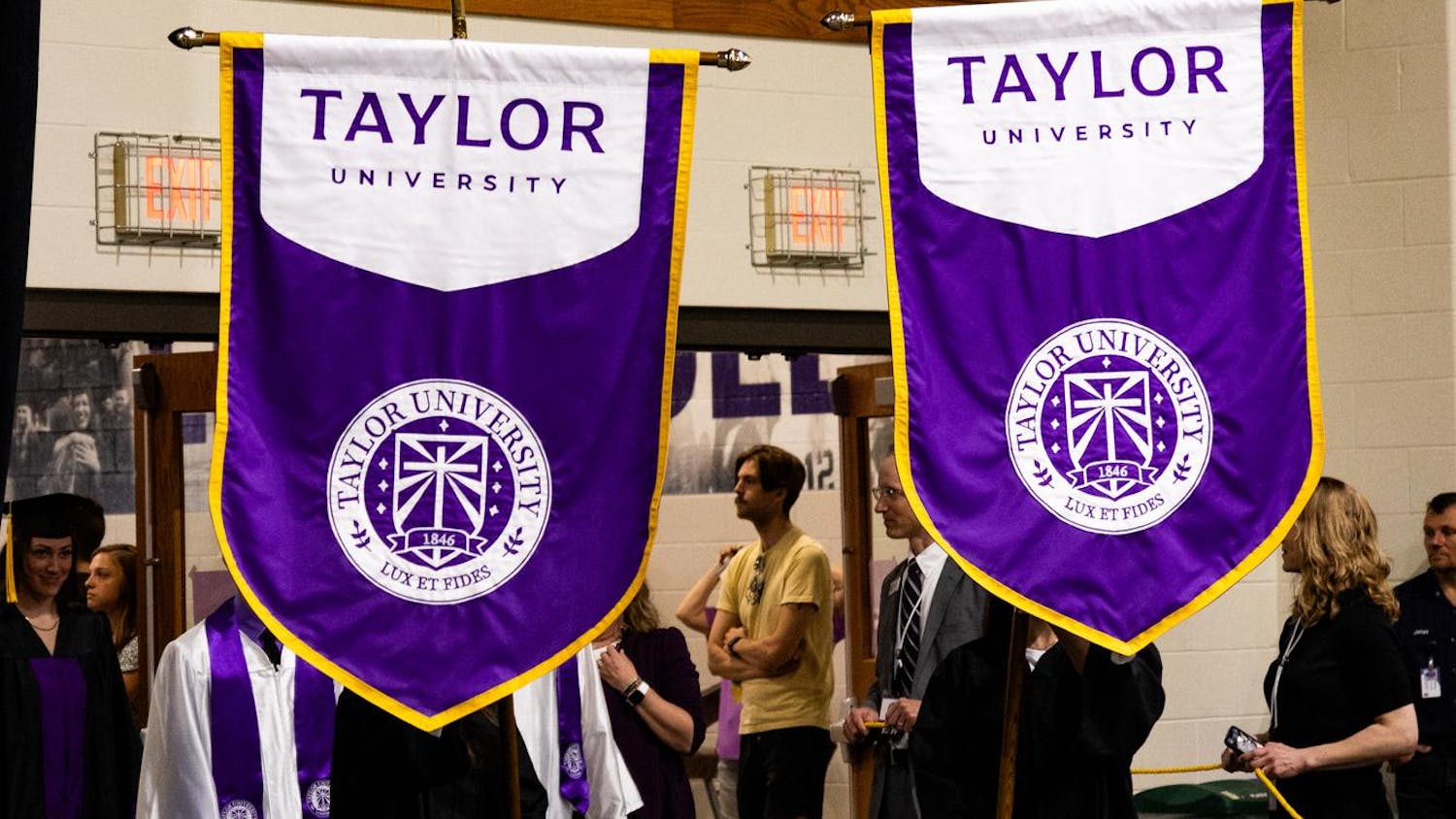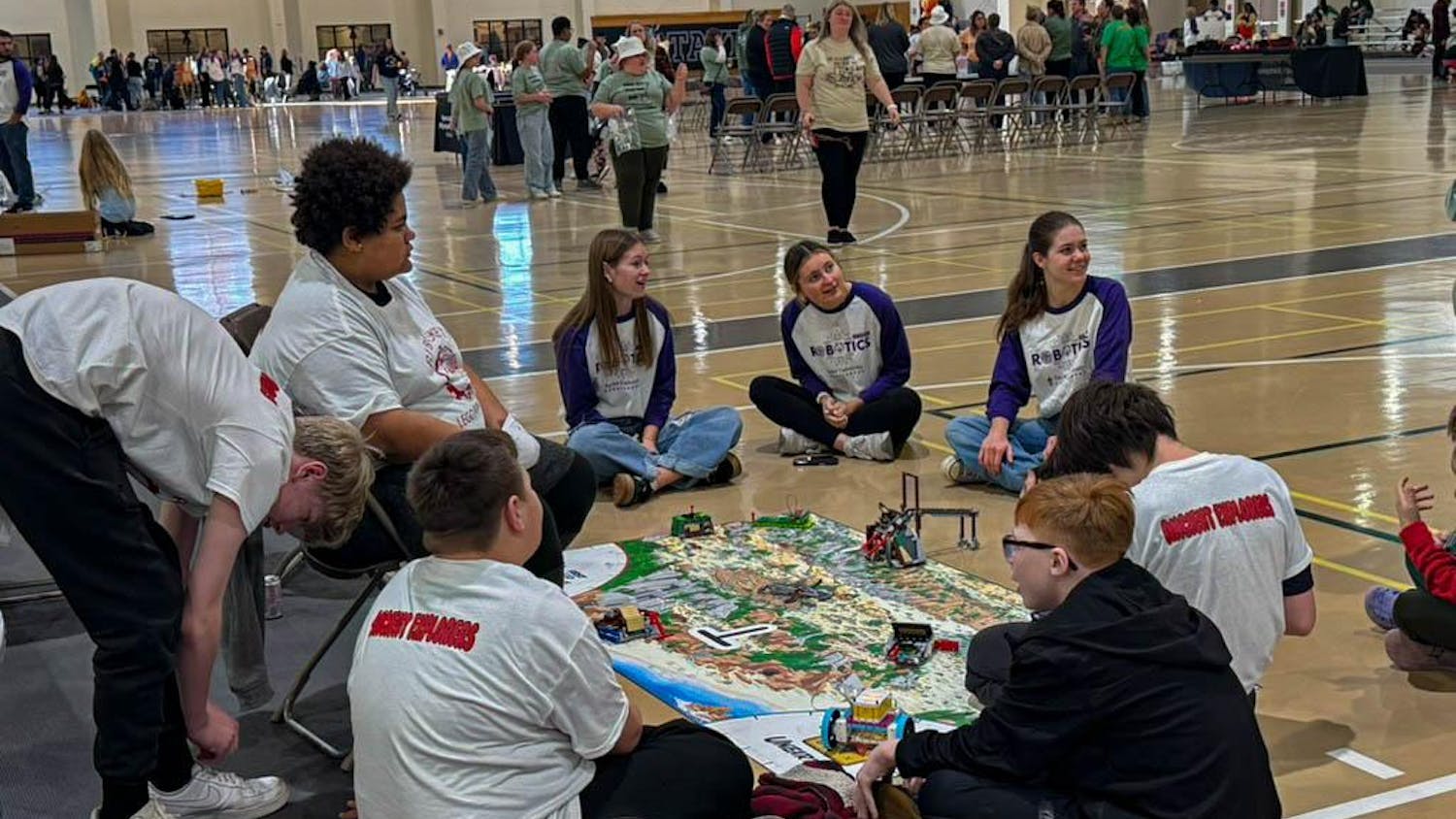"Christianity isn’t for strong people,” said Ben LeBlanc after months in a wheelchair. “It’s for weak people.”
LeBlanc, a politics, philosophy and economics major at Taylor University, tore his ligament and patella playing soccer with friends. He said this experience pushed him to trust God to work through his weakness.
Grappling excruciating pain and the pressure to perform as class president, LeBlanc initially ignored his injury. He continued jogging and working. The pain increased until he couldn’t walk.
Determined to recover quickly, LeBlanc confined himself to a wheelchair for six months.
He was unaware he’d developed CRPS, a neurological condition causing chronic pain.
CRPS left LeBlanc in agony even after his body had recovered. This pain led him to believe he should avoid walking.
LeBlanc said people with CRPS need to move past their pain in order to progress. Ignorant of his condition, LeBlanc refused to use his legs, inhibiting his recovery.
After discovering his condition, LeBlanc forced himself to walk, despite the pain.
He said God worked through his frustration, teaching him to rely on God rather than himself through hardship.
“Even though God lets us go through things like this, it made me more dependent on him,” he said. “He's basically shown me that, like, sometimes life's gonna suck, and you don't get why, but you have to trust that he has good purposes behind it, and that there is something greater in store than you know.”
LeBlanc said he wouldn’t have developed such reliance on God if he’d been able-bodied. He said this trial cultivated gratefulness for things he’d taken for granted: walking, sunsets, biking and time with friends.
LeBlanc also said the slower life pace his injury demanded curbed his drivenness. He said his drivenness can be dangerous and self-consuming.
“Separate it from God, and it can lead to your destruction,” he said. “Because you’re building your own kingdom, and doing ‘good things’ that God never asked you to do.”
Without his prideful drivenness overcome, LeBlanc said he was able to surrender to God’s plan for his life, though it felt confusing.
LeBlanc still fights to maintain this trust in God. Despite increased faith, he said he still battles doubt as he considers whether he’s lived a life of meaning and accomplishment.
“I feel super out of place,” he said. “I should be, like, in the mission field, or I should be covering conflict in a war zone or something, not being in college.”
LeBlanc said he wishes to live life at a quicker pace than his injury permits. He said it’s confusing to experience desires for accomplishment he’s unable to fulfill.
He said he continues the fight to trust God as he works toward performing basic skills and functions.
“I’m pretty much being brought back to the basics, like how to walk,” he said. “That’s just forced me to rely on God. Just to not be the captain of the ship.”
Though LeBlanc says walking and carrying books around campus may initially stress his foot, he’s confident the pain will lessen. He said his condition will improve the more frequently he uses his legs. He foresees increased mobility in the near future and said he hopes to participate in more extracurriculars by next semester.
LeBlanc didn’t want to think about how he would’ve responded to his injury if God hadn’t sustained him and supplied him with faith. He said he would’ve probably felt anxious and lost.
“I would’ve just had six months of just anguish and just digging myself into a hole,” he said.
In the end, LeBlanc is grateful for God’s ability to use hardships and weakness to build faith, and said he hopes God forms him into the person he wants him to be.
He said that while the details of his future are unknown, he can always obey God’s will for his life.
“As long as God wants me to be there, I don’t care what I’m doing,” he said. “As long as he wants me to be there, that’s where I’m supposed to be.”



